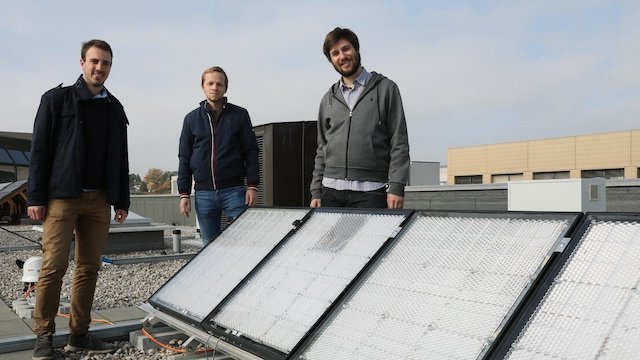
Recently, a startup company has shown that new residential solar panels deliver record-breaking efficiency.
The startup, Insolight, develops solar panels that boast an impressive 29 percent yield – a record for the retail market.
Previous studies have shown that average yield on commercial solar panels has increased by just 3.5 percentage points since the 2000s and seemed to be reaching a plateau.
However, Insolight wanted to push yields further and decided to build residential solar panels that employ the same kinds of cells used in satellites, which are very efficient but also very expensive.
They developed a protective glass, on which optical lenses can be placed that concentrate sunlight by some 100x and direct it to the tiny surface of the high-performance cells.
Their design means the cells need to take up less than 0.5 percent of the solar panel surface.
In this way, they could keep costs down for the retail market.
All rooftop solar panels look pretty much the same from the outside: same size, same thickness and even the same installation system.
However, on the inside, the solar panels developed by EPFL spin-off Insolight stand apart.
Insolight’s panels were recently tested by an independent lab. They use a patented optical system that concentrates sunlight on a kind of miniature photovoltaic cell normally used in satellites.
The ultra-thin system has the same look and shape as regular rooftop panels and can be installed in the same way.
The company also designed a mechanism that can move the cells horizontally by a few millimeters each way in order to follow sunlight throughout the day.
The team suggests this hybrid approach is particularly effective when it’s cloudy and the sunlight is less concentrated, since it can keep generating power even under diffuse light rays.
They also suggest that Insolight’s solar panels offer a better return on investment than competing solutions.
The technology could cut household energy bills by up to 30 percent in sunny regions.
Insolight’s three founders are Mathieu Ackermann, Laurent Coulot and Florian Gerlich. They are currently in talks with several solar panel manufacturers to license their technology.
The company plans to launch its first product on the market in 2022.
Copyright © 2019 Knowridge Science Report. All rights reserved.



